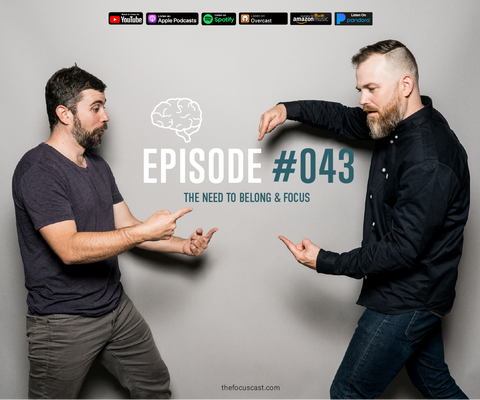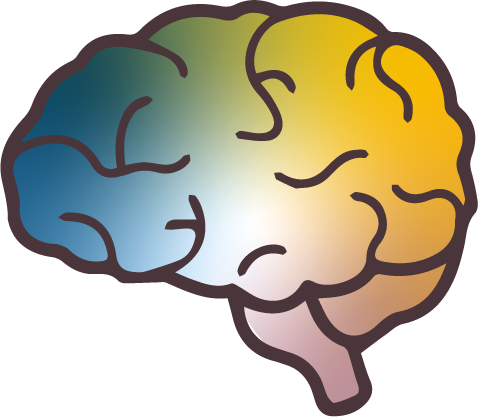
#43 The Need to Belong & Focus
This is the 3rd episode of our 5 episode series on the hierarchy of needs and how those needs consume our minds and focus. Unfortunately, we leave little brain energy to focus on our future, which leads us right back to the hamster wheel day after day after day. Today we are talking about the third level of needs: our need for Love and belongingness. Let’s dig in…
00:00 Intro to physiological needs & focus
00:37 Intro to podcast
01:13 Problem Our Need to Belong and Focus
13:00 Solution to increasing our focus
LISTEN
PROBLEM
- Our need for Love and belongingness (SimplyPsychology.org)
- The third level of human needs is social and involves feelings of belongingness.
- Belongingness, refers to a human emotional need for interpersonal relationships, affiliating, connectedness, and being part of a group.
- Examples of belongingness needs include friendship, intimacy, trust, and acceptance, receiving and giving affection, and love.
- Our need to be loved and belong is built on our lower two levels: if we belong to a group, we increase the chances of survival and meeting our physiological needs while also creating a “tribe” in which we feel safe. Who is keeping watch when we are asleep?
- Beyond that is our deep desire to be accepted, to belong to a group, to feel like an outcast. A NLB article, The origins of belonging, Harriet Over writes, “It is clear that our reliance on our group members has exerted a powerful influence over our cognitive abilities. We have sophisticated skills for understanding the mental states of those around us [5,6], engaging in joint action with our social partners [7] and learning from their behavior [8,9]. Experimental psychologists have demonstrated that many of these skills appear early in development [10,11] and that their successful performance is essential to children's functioning.
- These cognitive abilities (our emotional intelligence) require an intense amount of focus.
- Last Point from this article before we move to solutions: “According to Baumeister & Leary's [26] conceptualization, fulfilling the need to belong involves satisfying two criteria.
- First, individuals must have relatively frequent, positively valanced (or at least non-aversive) interactions with at least a few other people.
- Second, these interactions must take place within a framework of long-lasting affective concern for each other's welfare.
- Satisfying either of these criteria alone is not sufficient to fulfill the need: positive interactions outside of long-lasting relationships will not be completely satisfying and nor will long-term relationships that lack regular contact.
- Importantly, it is conceptualized as a need rather than simply a desire. This means that failure to satisfy it ought to be marked by serious distress and long-term negative consequences.”
SOLUTION
- Audit your tribe (1-3 close relationships). Do they meet the two requirements: ONE: relatively frequent, positive interactions and TWO: these interactions must take place within a framework of long-lasting affective concern for each other's welfare.
- If you do not have this: it is time to move on and find a new tribe.
- Look for a tribe of individuals who are actively pursuing their long-term dreams.
- This is a POV statement, but worth saying, our current societal construct is designed to keep us in a state of labor contribution and commodity consumption. We are essential cows in the machine.
- IT TAKES WORK to fight the machine. We must be intentional about the individuals we choose to belong to.
FIND US ON
https://formsandfocus.com/
https://www.instagram.com/thefocuscast
https://www.tiktok.com/@thefocuscast
#focus #dream #needtobelong

Comments (0)
There are no comments for this article. Be the first one to leave a message!